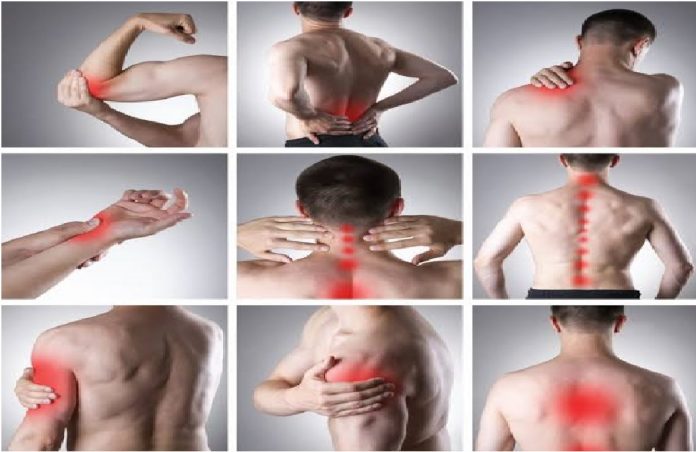Muscle pain, also known as myalgia, is a common complaint that can affect people of all ages. Whether it’s due to overexertion, stress, or an underlying medical condition, muscle pain can hinder daily activities and impact overall well-being. Fortunately, several remedies and treatments are available to alleviate discomfort and restore mobility. In this article, we will explore effective methods to relieve muscle pain, ranging from home remedies to medical treatments, including the use of Zerodol SP for more severe cases.
Common Causes of Muscle Pain
Muscle pain can arise from various factors, including:
- Overuse or Strain: Intense workouts, heavy lifting, or repetitive motions can lead to muscle fatigue and soreness.
- Injuries: Sprains, tears, or trauma to muscles often result in pain and stiffness.
- Stress and Tension: Psychological stress can cause muscle tension, particularly in the neck, shoulders, and back.
- Infections or Illnesses: Viral infections like the flu can cause widespread muscle aches.
- Medical Conditions: Conditions like fibromyalgia, arthritis, or autoimmune diseases can lead to chronic muscle pain.
Home Remedies for Muscle Pain Relief
Common home remedies include:
1. Rest and Hydration
Resting the affected muscle allows it to recover from strain or injury. Staying hydrated ensures proper muscle function and lowers the risk of cramps.
2. Cold and Heat Therapy
- Cold Therapy: Applying an ice pack for 15-20 minutes can reduce inflammation and numb the area, providing immediate relief.
- Heat Therapy: A heating pad or warm compress increases blood flow, relaxing tense muscles and easing chronic pain.
3. Gentle Stretching and Massage
Stretching helps release tension and improve flexibility, while a massage boosts circulation and alleviates stiffness. Focus on the sore areas for better results.
4. Over-the-Counter Pain Relievers
Non-prescription medications like ibuprofen or acetaminophen can reduce pain and inflammation, providing temporary relief.
5. Essential Oils and Natural Remedies
- Eucalyptus Oil: Known for its anti-inflammatory properties, eucalyptus oil can be massaged into sore muscles.
- Turmeric: Consuming turmeric, a natural anti-inflammatory, can help alleviate muscle pain.
Medical Treatments for Severe Muscle Pain
If home remedies do not provide relief, medical treatments may be required. These treatments include:
1. Physical Therapy
Physical therapists can recommend specific exercises and stretches to strengthen muscles and prevent further injuries.
2. Prescription Medications
For intense or persistent muscle pain, doctors may prescribe anti-inflammatory drugs like Zerodol SP. This medication combines aceclofenac, paracetamol, and serratiopeptidase, providing relief by reducing pain, inflammation, and swelling. Always use Zerodol SP under medical supervision to ensure its safety and effectiveness.
3. Trigger Point Injections
If muscle pain stems from knots or trigger points, a healthcare provider can administer anaesthetic injections to alleviate discomfort.
4. Alternative Therapies
- Acupuncture: This traditional Chinese therapy involves inserting thin needles into specific points to relieve muscle tension.
- Chiropractic Care: Chiropractors can adjust misalignments in the spine, which may be contributing to muscle pain.
Preventing Muscle Pain
Common ways to prevent muscle pain include:
1. Regular Exercise
Engaging in regular physical activity strengthens muscles and improves flexibility, reducing the likelihood of pain.
2. Proper Warm-Up and Cool-Down
Always warm up before exercising and cool down afterwards to prevent muscle strain.
3. Ergonomic Practices
Ensure your workplace and daily activities promote good posture and reduce strain on muscles.
4. Balanced Diet
Include foods rich in magnesium, calcium, and potassium to support muscle health.
Hydration is equally important.
When to Seek Medical Attention?
While most muscle pain resolves with home remedies and rest, you should consult a doctor if:
- The pain is severe or persists for more than a week.
- There is swelling, redness, or warmth in the affected area.
- You experience difficulty breathing, dizziness, or other unusual symptoms alongside
- muscle pain.
- You suspect a serious injury or underlying medical condition.
Conclusion
Muscle pain can disrupt your daily life, but with the right remedies and preventive measures, you can manage and alleviate discomfort effectively. From simple home treatments to advanced medical solutions like Zerodol SP, various options cater to different levels of pain. By understanding the cause of your muscle pain and addressing it appropriately, you can maintain a pain-free and active lifestyle.
If your muscle pain persists or worsens, don’t hesitate to seek professional help for proper diagnosis and treatment. Remember, timely intervention can make a significant difference in your recovery journey.





